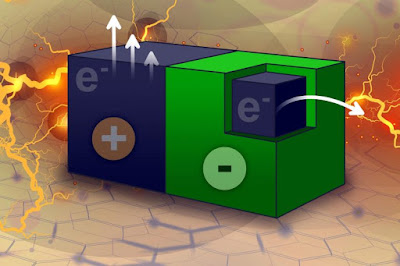MIT's New Way to Generate Electricity
Big Discovery by MIT Engineers
Source: MIT
No Wires or Battery Needed
MIT engineers have discovered a brand new way of generating electricity. They're using tiny carbon particles that create an electric current by interacting with their liquid environment of an organic solvent. The particles are made of crushed carbon nanotubes (blue in the image) coated with a teflon-like polymer (green). The MIT researchers say the current can power micro or nanoscale robots and can also be used to trigger chemical reactions. Their process of generating electricity is completely new and innovative. All that is necessary is to surround the carbon particles with the solvent. It generates an electrical current with no wires needed.
Pulling Energy From the Environment
Electrical engineering experts are hailing this discovery as leading the way to a generic methodology that can be easily expanded to the use of different materials and applications. The MIT team is focused on the potential applications for micro and nanoscale robots for use as sensors for diagnostic and environment applications. MIT lead researcher Professor Michael Strano says the beauty of the system is that it scavenges energy from its environment. "What we like about this mechanism is that you can take the energy, at least in part, from the environment. It means you don't have to put the energy storage onboard." In that sense, the process is sustainable. This breakthrough discovery was just published in Nature Communications.

%20(1)%20(1)%20(3)%20(2)%20(2).jpg)


Comments
Post a Comment